
CashOnHand - Independent Living Skills - Leilani - English
- Subject:
- Business and Communication
- Education
- Finance
- Special Education
- Material Type:
- Lesson
- Date Added:
- 07/19/2021

CashOnHand - Independent Living Skills - Leilani - English

CashOnHand - Independent Living Skills - Leilani - Spanish

Financial literacy - CashOnHand - Needs vs Wants - Don - ASL/English

Financial literacy - CashOnHand - Needs vs Wants - Don - ASL/Spanish

Financial literacy - CashOnHand - Ready to Work - Toni - ASL/English

Financial literacy - CashOnHand - Ready to Work - Toni - ASL/Spanish

CashOnHand - Summary - Seth - English

CashOnHand - Summary - Seth - Spanish

CashOnHand - Transportation - Brandon - English

CashOnHand - Transportation - Brandon - Spanish
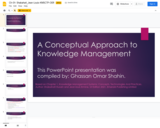
This is a first try of publishing OER through the Creative Common . This is a power point slide of chapter 1 of the book , Knowledge Management Systems: Concepts, Technologies And Practices. Author: Shabahati Husain and Jean-louis Ermine, !st Edition 2021, Emerald Publishing Limited.
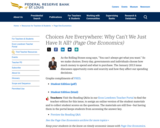
As the Rolling Stones song says, "You can't always get what you want." So we make choices. Every day, governments and individuals choose how much money to spend and what to purchase. The January 2013 issue discusses opportunity costs and scarcity and how they effect our spending decisions.

This course is a service-learning, project-based studio course that focuses on collaborative design of civic media. Students will work in diverse teams with community partners to create civic media projects grounded in real-world community needs. This course covers co-design and lean UX methods, and best practices for including communities in iterative stages of project ideation, design, prototyping, testing, launch, and stewardship. Students should have an interest in collaboration with community-based organizations.

Class slides for Sustainable Property Management (2023) are freely-available, screen-reader friendly, openly-licensed, and editable. The slides align with the freely-available open textbook, Sustainable Property Management, which is the required text for Virginia Tech's Department of Apparel, Housing, and Resource Management, PM 3674, Property Management Operations. The collection includes chapter-level .ppt slides with questions and activities for each of the eight chapters.
The open textbook, Sustainable Property Management, is freely available in PDF, ePub, Pressbooks, and other formats at https://doi.org/10.21061/sustainable_property_management.
Help us!
If you are an instructor reviewing, adopting, or adapting this textbook and/or slides, please help us understand your use by filling out this form https://bit.ly/interest_sustainable_property_management
How to adapt and share the slides
Instructors are encouraged to customize the slide deck by adding their own content and examples. According to the Creative Commons BY NC SA license, customized and shared versions of the slides must:
- Retain the original copyright statement
- Be released under the Creative Commons Attribution NonCommercial-ShareAlike (CC BY NC SA) 4.0 license
- Include a link to the original slide deck source: http://hdl.handle.net/10919/11342
- Include brief statement regarding whether or not changes were made
- List the name of the adapter
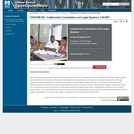
How do individuals and families interface with larger systems, and how do therapists intervene collaboratively? How do larger systems structure the lives of individuals and families? Relationally-trained practitioners are attempting to answer these questions through collaborative and interdisciplinary, team-focused projects in mental health, education, the law, and business, among other fields. Similarly, scholars and researchers are developing specific culturally responsive models: outreach family therapy, collaborative health care, multi-systemic school interventions, social-justice-oriented and spiritual approaches, organizational coaching, and consulting, among others. This course explores these developments and aims at developing a clinical and consulting knowledge that contributes to families, organizations, and communities within a collaborative and social-justice-oriented vision.
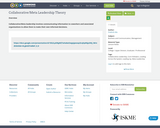
Collaborative/Meta leadership involves communicating information to coworkers and associated organizations to allow them to make their own informed decisions.
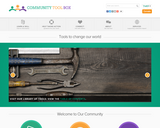
The Community Tool Box is a free, online resource for those working to build healthier communities and bring about social change. Our mission is to promote community health and development by connecting people, ideas, and resources. The Community Tool Box is a public service developed and managed by the KU Center for Community Health and Development and partners nationally and internationally. The Tool Box is a part of the Center’s role as a designated World Health Organization Collaborating Centre for Community Health and Development.
Professors and instructors from various disciplines use the Community Tool Box as a resource for their teaching. The Tool Box is often used as course text in the fields of public health, community psychology, nursing, social welfare, and other applied fields.
Chapter 1. Our Model for Community Change and Improvement
Chapter 2. Other Models for Promoting Community Health and Development
Chapter 3. Assessing Community Needs and Resources
Chapter 4. Getting Issues on the Public Agenda
Chapter 5. Choosing Strategies to Promote Community Health and Development
Chapter 6. Communications to Promote Interest
Chapter 7. Encouraging Involvement in Community Work
Chapter 8. Developing a Strategic Plan
Chapter 9. Developing an Organizational Structure for the Initiative
Chapter 10. Hiring and Training Key Staff of Community Organizations
Chapter 11. Recruiting and Training Volunteers
Chapter 12. Providing Training and Technical Assistance
Chapter 13. Orienting Ideas in Leadership
Chapter 14. Core Functions in Leadership
Chapter 15. Becoming an Effective Manager
Chapter 16. Group Facilitation and Problem-Solving
Chapter 17. Analyzing Community Problems and Solutions
Chapter 18. Deciding Where to Start
Chapter 19. Choosing and Adapting Community Interventions
Chapter 20. Providing Information and Enhancing Skills
Chapter 21. Enhancing Support, Incentives, and Resources
Chapter 22. Youth Mentoring Programs
Chapter 23. Modifying Access, Barriers, and Opportunities
Chapter 24. Improving Services
Chapter 25. Changing Policies
Chapter 26. Changing the Physical and Social Environment
Chapter 27. Cultural Competence in a Multicultural World
Chapter 28. Spirituality and Community Building
Chapter 29. The Arts and Community Building
Chapter 30. Principles of Advocacy
Chapter 31. Conducting Advocacy Research
Chapter 32. Providing Encouragement and Education
Chapter 33. Conducting a Direct Action Campaign
Chapter 34. Media Advocacy
Chapter 35. Responding to Counterattacks
Chapter 36. Introduction to Evaluation
Chapter 37. Operations in Evaluating Community Interventions
Chapter 38. Some Methods for Evaluating Comprehensive Community Initiatives
Chapter 39. Using Evaluation to Understand and Improve the Initiative
Chapter 40. Maintaining Quality Performance
Chapter 41. Rewarding Accomplishments
Chapter 42. Getting Grants and Financial Resources
Chapter 43. Managing Finances
Chapter 44. Investing in Community Resources
Chapter 45. Social Marketing of Successful Components of the Initiative
Chapter 46. Planning for Sustainability
Sample syllabi are also available: https://ctb.ku.edu/en/teaching-with-the-community-tool-box

This is a pathfinder designed for users who are new to Tableau Desktop and Tableau Public. The purpose of this pathfinder is to be a companion resource to the February 25, 2023 presentation Create Accurately and Interactive Dashboards with Tableau. The Tableau Student Ambassador presenters of the workshop were Taiwo Adegite, Junior Analyst; and Zena Patton, Corporate Learning Professional, and Librarian. To learn more about the Tableau Community Leader Ambassador program, go to the following link https://www.tableau.com/community/community-leaders/ambassadors This companion resource is an artifact of a global, collaborative effort between Taiwo Adegite (Nigeria), Junior Analyst; and Zena Patton (United States of America), Corporate Learning Professional, and Librarian.Last update April 15, 2023. This update includes resources from Flip the Tableau! Learning Experience.
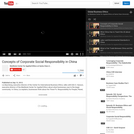
Liu Baocheng, executive director of the Center for International Business Ethics, talks with Kirk O. Hanson, executive director of the Markkula Center for Applied Ethics, about what businesses owe to the larger community. In China, Liu explains, businesses think about the Three P's: Responsibility for People, Planet, and Profit.

Perspectives for the Canadian Workplace
Short Description:
This book examines the nature of conflict in the workplace - its sources, costs and management, as well as workplace conflict management with respect to group interactions, organizational culture, and provincial/federal legislation. In addition, this book focuses on the individual; how our perceptions, emotions, motivation, personality and communication skills impact how we manage stress and conflict at work. Throughout the book, readers are encouraged to engage in critical self-assessment and case study review. These exercises provide the reader with the opportunity to assess potential conflict situations, recognize emotions, communicate assertively, and manage conflict with integrity and professionalism.
Long Description:
This Open Educational Resource (OER) is a custom publication for students enrolled in PSYC-6006: Conflict Management.
In the first half of the book, we will examine the nature of conflict in the workplace – its sources, costs and management. We will also briefly examine workplace conflict management with respect to group interactions, organizational culture, and provincial/federal legislation.
During the second half of the book, the focus will be on the individual; how our perceptions, emotions, motivation, personality and communication skills impact how we manage stress and conflict at work.
Throughout the book, you will be encouraged to engage in critical self-assessment and case studies. These exercises will provide you with the opportunity to assess potential conflict situations, recognize your emotions, communicate assertively, and manage conflict with integrity and professionalism.
Word Count: 168804
(Note: This resource's metadata has been created automatically by reformatting and/or combining the information that the author initially provided as part of a bulk import process.)